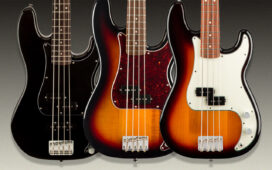Introduction
The rise of affordable recording equipment has made it easier than ever for musicians and creators to produce music at home. However, professional studios remain essential for artists who want polished, industry-quality results. Understanding the differences between a home setup and a commercial recording studio helps musicians decide which option best suits their needs. Facilities like Studio d’enregistrement Base Bin provide professional-grade spaces designed to elevate recordings beyond what most home environments can achieve.
Equipment Quality and Variety
One of the most significant differences lies in the gear available.
- Home Studios – Often rely on entry-level or mid-range equipment such as USB microphones, small audio interfaces, and budget monitors.
- Commercial Studios – Feature high-end gear, including large-format mixing consoles, premium microphones, analog compressors, and extensive plugin libraries.
At a professional studio, artists benefit from a range of equipment tailored to specific instruments, vocal tones, and production styles.
Acoustic Design and Soundproofing
Acoustics play a huge role in recording quality.
- Home Studios – Typically set up in bedrooms or basements, with minimal treatment like foam panels. While these help reduce reflections, they rarely achieve true acoustic balance.
- Commercial Studios – Built with professional soundproofing and acoustic treatment, offering isolation booths, control rooms, and live rooms designed for optimal sound capture.
Engineering Expertise
While gear matters, skilled engineers make the biggest difference.
- Home Studios – Artists often manage recording, mixing, and mastering themselves, which can limit results without formal training.
- Commercial Studios – Provide access to experienced sound engineers who understand microphone placement, mixing techniques, and mastering for industry standards.
This expertise allows artists to focus on performance while professionals handle the technical side.
Recording Space and Flexibility
The physical environment shapes the creative process.
- Home Studios – Limited in space, making it difficult to record large ensembles or drum kits effectively.
- Commercial Studios – Offer multiple rooms, allowing simultaneous recording of vocals, instruments, and ensembles.
This flexibility is vital for bands, orchestras, or collaborative projects that require live tracking.
Cost and Accessibility
Budget is another key difference.
- Home Studios – Inexpensive to set up initially and convenient for unlimited recording time.
- Commercial Studios – Require booking fees, but deliver faster, higher-quality results due to professional equipment and staff.
For serious projects, the efficiency and quality of a commercial studio often outweigh the cost.
Final Product Quality
Ultimately, the most noticeable difference is in the end result.
- Home Studios – Can produce decent demos, podcasts, and independent projects, but often lack the depth and polish of professional recordings.
- Commercial Studios – Deliver radio-ready, industry-standard tracks that hold up against commercial releases.
For artists aiming to compete in today’s music industry, professional studios remain the gold standard.
Final Thoughts
Home studios are excellent for practicing, experimenting, and recording demos, but commercial facilities provide the expertise, acoustics, and equipment necessary for professional-grade results. A space like Studio d’enregistrement Base Bin bridges creativity with technical excellence, ensuring that musicians achieve polished, high-quality recordings. Choosing between the two depends on your goals—but for projects requiring maximum impact, a commercial studio is often the better choice.







